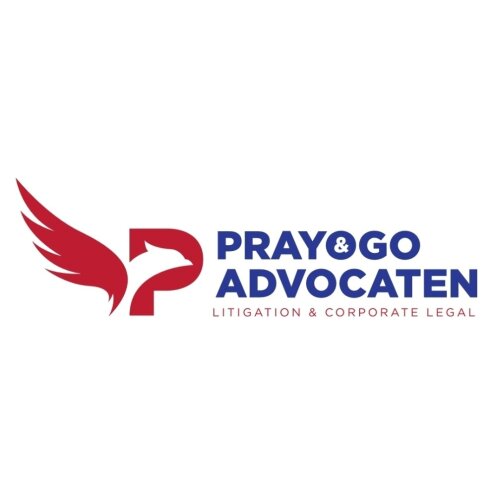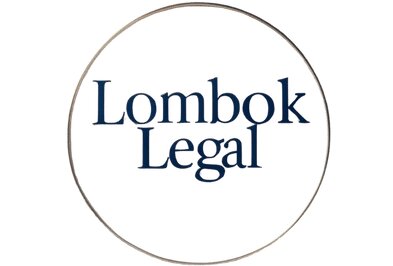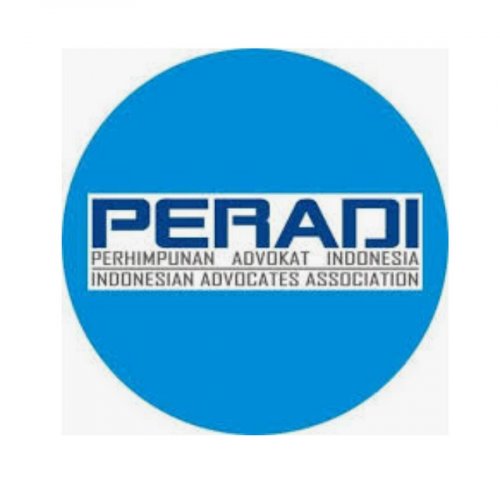Best Public-Private Partnerships (PPP) Lawyers in Indonesia
Share your needs with us, get contacted by law firms.
Free. Takes 2 min.
Or refine your search by selecting a city:
List of the best lawyers in Indonesia
About Public-Private Partnerships (PPP) Law in Indonesia
Public-Private Partnerships (PPP) in Indonesia refer to cooperative arrangements between government agencies and private sector entities designed to deliver public infrastructure and services. PPPs are widely used to support the development, financing, operation, and maintenance of public projects spanning sectors such as transportation, energy, water, healthcare, and education. The regulatory framework in Indonesia has evolved to attract private investment, promote modernization, and ensure transparency and accountability in project execution. The main legal basis for PPPs in Indonesia is laid out in Presidential Regulation No. 38 of 2015 on Public-Private Partnership in Infrastructure Procurement, along with supporting sectoral regulations.
Why You May Need a Lawyer
Engaging in PPP projects in Indonesia involves navigating complex legal, regulatory, and contractual frameworks. Common situations where you may require legal help include:
- Understanding regulatory requirements to enter or initiate a PPP project
- Drafting, reviewing, or negotiating PPP contracts and related agreements
- Assessing land procurement, environmental, and licensing issues
- Dealing with government authorities and compliance with procurement procedures
- Managing risk allocation, financial guarantees, and dispute resolution mechanisms
- Ensuring compliance with foreign investment rules and local content obligations
- Resolving disputes arising from contract performance or termination
- Advising on corporate structuring, tax implications, and project financing options
A lawyer specializing in PPP can help you avoid legal pitfalls and ensure your interests are protected throughout the project lifecycle.
Local Laws Overview
PPP projects in Indonesia are primarily governed by Presidential Regulation No. 38 of 2015. Key features of the local legal framework include:
- Types of Projects: PPPs are applied mainly in public infrastructure, including roads, water supply, waste management, power generation, telecommunications, and public housing.
- Project Procurement: PPP projects are procured through a transparent and competitive tender process, managed by a government contracting agency.
- Private Participation: Both domestic and foreign private parties are allowed to participate, subject to sector-specific restrictions and foreign investment regulations.
- Concession Period: PPP agreements usually specify a concession period, after which the project may transfer back to the government.
- Government Support: Government support may include fiscal incentives, guarantees, and viability gap funding, depending on the project's strategic value and public benefits.
- Land and Permits: PPP sponsors are expected to acquire necessary land and permits, but government assistance is sometimes available, particularly for critical infrastructure.
- Dispute Resolution: Contracts typically include provisions for dispute resolution, either through Indonesian courts or arbitration, depending on the parties’ agreement.
- Oversight: Projects are closely monitored by relevant ministries, regional governments, and the National Development Planning Agency (Bappenas).
Frequently Asked Questions
What is a Public-Private Partnership (PPP) in Indonesia?
A PPP is a collaboration between government entities and private sector companies to finance, build, and operate public infrastructure or services. The arrangement allows for risk sharing and the leveraging of private expertise and capital.
Which laws govern PPPs in Indonesia?
The main legal basis is Presidential Regulation No. 38 of 2015, along with sector-specific regulations and supporting regulations on procurement, foreign investment, land acquisition, and dispute resolution.
What sectors are open for PPP investment?
Key sectors include transportation (roads, airports, ports), energy, water supply, waste management, telecommunications, health, education, and housing. Each sector may have its own requirements or limitations.
Can foreign investors participate in PPP projects?
Yes, foreign investors can participate, but must comply with the prevailing Negative Investment List and sectoral regulations, which may impose ownership limitations in certain sectors.
How are PPP projects selected?
Projects are identified by the government based on national and regional development priorities. Selection of private partners typically follows a transparent tender process.
What government support is available?
Depending on the project's public benefit and financial needs, government support may include fiscal incentives, risk guarantees, viability gap funding, and land acquisition assistance.
How are disputes resolved in PPP projects?
Dispute resolution mechanisms are typically specified in the PPP contract and may involve Indonesian courts or arbitration, either local or international, according to the parties' agreement.
What are the typical stages of a PPP project?
PPP projects generally go through project preparation, procurement, negotiation, financial close, construction, operation, and eventual handover or transfer to the government.
What is the usual contract length for PPP projects?
Contract periods depend on the project but typically range from 15 to 30 years, encompassing both construction and operational phases.
What are the main risks involved in PPP projects?
Main risks include legal and regulatory changes, land acquisition hurdles, demand and revenue fluctuations, financing challenges, construction delays, and political risks.
Additional Resources
If you seek more information or support regarding PPPs in Indonesia, the following governmental bodies and organizations are especially useful:
- National Development Planning Agency (Bappenas)
- Indonesia Investment Coordinating Board (BKPM)
- Ministry of Public Works and Housing (Kementerian PUPR)
- Ministry of Finance - Directorate General of Risk Management and Financing
- PPP Joint Office (KPBU)
- Regional government offices related to specific projects
- Relevant chambers of commerce and industry associations
- Professional legal consultants specializing in infrastructure and PPP
Next Steps
If you are considering participating in a PPP project in Indonesia or require legal assistance, consider the following steps:
- Identify the scope and objectives of your intended participation or project.
- Reach out to relevant government agencies or check published project lists and tender announcements.
- Consult with a legal advisor specializing in PPPs to review regulations, eligibility, and compliance requirements.
- Prepare necessary documentation and assess potential risks and financing strategies with professional support.
- Engage in preliminary discussions or negotiations with government representatives or partners.
- Ensure all contractual, licensing, tax, and investment arrangements are properly structured and documented.
- If uncertain, seek references or referrals for reputable law firms or consultants experienced in Indonesian PPP frameworks.
Getting timely legal advice early can make the difference between a successful PPP venture and one hindered by regulatory or contractual issues. Proper preparation and expert guidance are crucial for achieving your infrastructure development goals in Indonesia.
Lawzana helps you find the best lawyers and law firms in Indonesia through a curated and pre-screened list of qualified legal professionals. Our platform offers rankings and detailed profiles of attorneys and law firms, allowing you to compare based on practice areas, including Public-Private Partnerships (PPP), experience, and client feedback.
Each profile includes a description of the firm's areas of practice, client reviews, team members and partners, year of establishment, spoken languages, office locations, contact information, social media presence, and any published articles or resources. Most firms on our platform speak English and are experienced in both local and international legal matters.
Get a quote from top-rated law firms in Indonesia — quickly, securely, and without unnecessary hassle.
Disclaimer:
The information provided on this page is for general informational purposes only and does not constitute legal advice. While we strive to ensure the accuracy and relevance of the content, legal information may change over time, and interpretations of the law can vary. You should always consult with a qualified legal professional for advice specific to your situation.
We disclaim all liability for actions taken or not taken based on the content of this page. If you believe any information is incorrect or outdated, please contact us, and we will review and update it where appropriate.
Browse public-private partnerships (ppp) law firms by city in Indonesia
Refine your search by selecting a city.
















